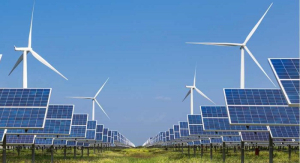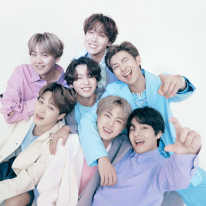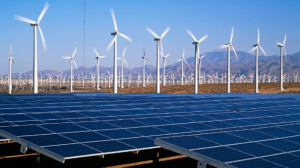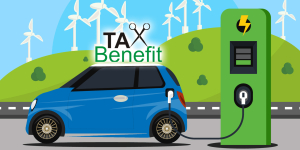Jokowi seizes opportunity at G7 Summit to attract investors for key projects
During the G7 Summit held from May 19 to 23, President Joko “Jokowi” Widodo utilized the forum to engage with countries that possess promising investment prospects in major projects, extending beyond the Nusantara Capital City (IKN) initiatives.
The G7 member countries, including the US, France, Italy, Germany, Canada, and Japan, play significant roles in terms of investment and providing support for key projects in Indonesia. Among these countries, Japan stands as the largest investor with a total of US$3.56 billion, closely followed by the US.
President Jokowi held several bilateral meetings with leaders of partner countries during the G7 Summit in Hiroshima, Japan.
Jokowi appeal to UK on JETP and developing an EV ecosystem
On May 20, Jokowi met with British Prime Minister Rishi Sunak, urging him to fulfil the financial commitment for the Just Energy Transition Partnership (JETP) program, which would help in achieving the zero-carbon emission target.
Moreover, Jokowi requested the UK's involvement in fostering an electric vehicle (EV) ecosystem, encompassing the supply of battery cells, the establishment of EV micro-factories, and strategic investments in the education sector.
Jokowi’s talk with Japanese PM
On the same day, Jokowi also held discussion with Japanese Prime Minister Fumio Kishida, aiming to secure the fulfilment of a substantial funding commitment of US$500 million for low-carbon technology and the early decommissioning of coal-fired power plants (PLTU). In the pursuit of accelerating net-zero emissions, multiple Japanese institutions have enlisted to collaborate with PT PLN, PT Pupuk Indonesia, and PT Pertamina.
In addition, ongoing negotiations between Indonesia and Japan were underway to finalize the Indonesia-Japan Economic Partnership Agreement (IJEPA) by the end of Q3 2023, with a continued emphasis on the mass rapid transport (MRT) project.
In terms of trade, emphasis was made in the removal of tariffs on canned tuna and the expansion of market access for tropical fruits from Indonesia. In return, various infrastructure projects were presented to Japan, including the continuation of the Jakarta-Surabaya fast train initiative.
Specifically for the IKN project, five Japanese institutions demonstrated their commitments. These include the Japan International Cooperation Agency (JICA), Japan Bank for International Cooperation (JBIC), Japan International Association for the Industry of Building and Housing (JIBH), Japan Conference on Overseas Development of Eco-Cities (J CODE), and Urban Renaissance Agency (UR).
Jokowi’s offer to Canada and South Korea for IKN and beyond
Jokowi made a similar offer regarding investment opportunities in IKN and various other projects to Canadian Prime Minister Justin Trudeau and South Korean President Yoon Suk Yeol. Specifically, Jokowi urged South Korea to actively pursue the implementation of the drinking water source project in IKN, while requesting Trudeau to encourage Canadian pension fund institutions to invest in IKN.
Additionally, Jokowi conveyed his gratitude for the support of G7 nations, including Canada, in aiding Indonesia’s energy transition. “I hope that the immediate realization of US$20 billion in financial support can be achieved, but not in the form of debt,” Jokowi said.
Jokowi’s meeting with French President on economy and defense
On May 21, Jokowi held a bilateral meeting with French President Emmanuel Macron at Grand Prince Hotel, Hiroshima, Japan. During the meeting, both leaders discussed at least four points, including bilateral cooperation in the economy and defense sectors.
First, regarding Indonesia’s bid to join the Financial Action Task Force (FATF). Jokowi appealed to France for its support in endorsing Indonesia’s candidacy for FTAF. Notably, Indonesia is the sole G20 member country that is yet to join the esteemed organization and had initially submitted its proposal to join FATF in 2017.
The government believes that Indonesia’s membership in the FATF will have a positive impact, especially on the perception of the Indonesian financial system and fostering an improved investment climate within the country.
Second, Jokowi asked for Macron’s support to finalize the comprehensive economic cooperation between Indonesia and the European Union, or the Indonesia-EU Comprehensive Economic Partnership Agreement (IEU-CEPA), by 2024.
Third, Jokowi also expressed his appreciation for the participation of French companies in Indonesia’s downstream projects and French assistance through The Agence Française de Développement (AFD) of EUR 500 million and the establishment of JETP Secretariat in Indonesia.
Jokowi highlighted the importance of advancing collaborations between Hydrogene de France (HDF) and PT Bukit Asam in the realm of hydrogen-based technology, as well as the partnership between the Center de coopération internationale en recherche agronomique pour le développement (CIRAD) and the Indonesian Blue Foundation for sustainable development. In this regard, Indonesia extended opportunities for investment to France in infrastructure, green energy, and ecotourism, especially in the IKN development.
Lastly, Jokowi welcomed the joint venture between PT Len Industri and Thales to continue providing technology transfer, knowledge exchange, and co-production related to defence and primary weapons systems.
Already have an account? Sign In
-
Start reading
Freemium
-
Monthly Subscription
30% OFF$26.03
$37.19/MonthCancel anytime
This offer is open to all new subscribers!
Subscribe now -
Yearly Subscription
33% OFF$228.13
$340.5/YearCancel anytime
This offer is open to all new subscribers!
Subscribe now






